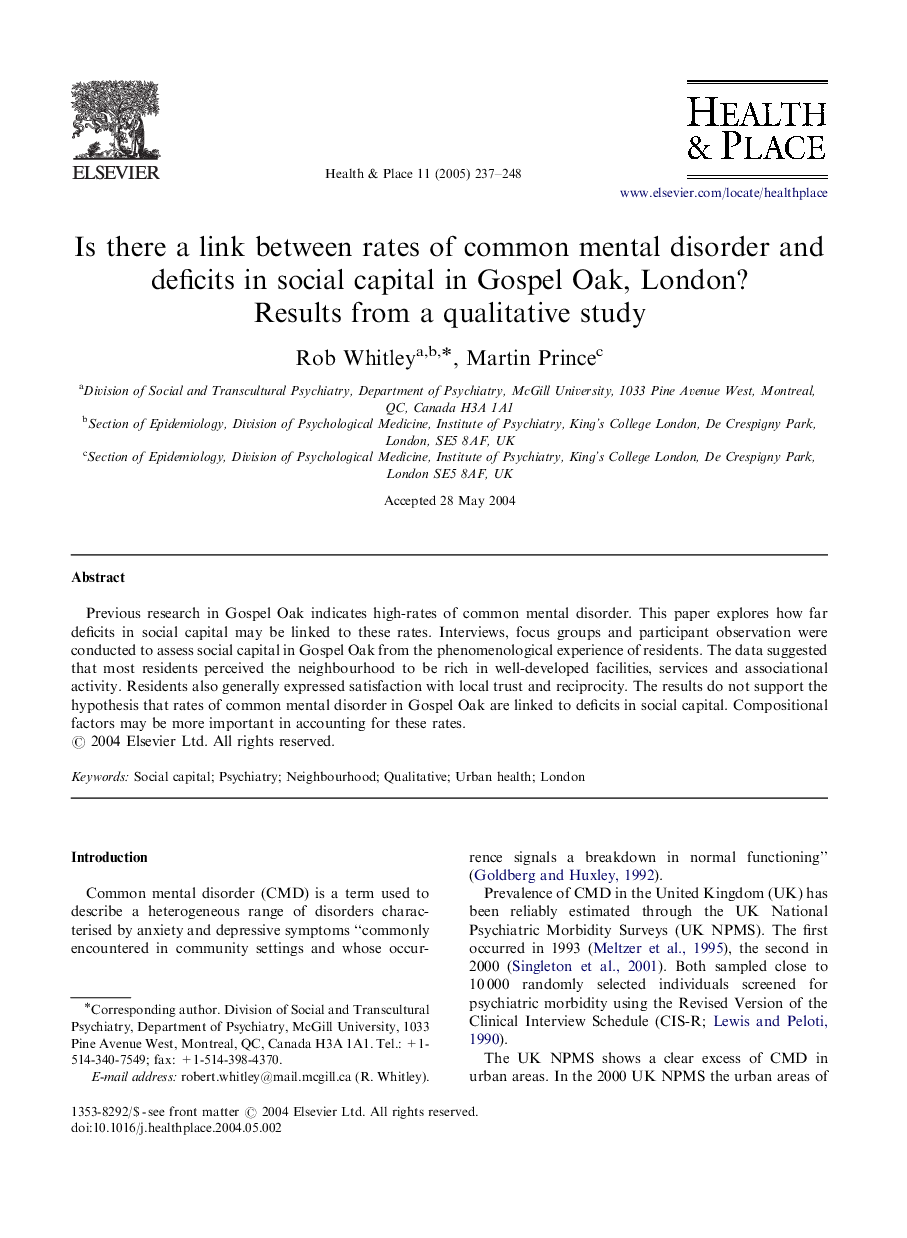| Article ID | Journal | Published Year | Pages | File Type |
|---|---|---|---|---|
| 10503189 | Health & Place | 2005 | 12 Pages |
Abstract
Previous research in Gospel Oak indicates high-rates of common mental disorder. This paper explores how far deficits in social capital may be linked to these rates. Interviews, focus groups and participant observation were conducted to assess social capital in Gospel Oak from the phenomenological experience of residents. The data suggested that most residents perceived the neighbourhood to be rich in well-developed facilities, services and associational activity. Residents also generally expressed satisfaction with local trust and reciprocity. The results do not support the hypothesis that rates of common mental disorder in Gospel Oak are linked to deficits in social capital. Compositional factors may be more important in accounting for these rates.
Related Topics
Health Sciences
Medicine and Dentistry
Public Health and Health Policy
Authors
Rob Whitley, Martin Prince,
